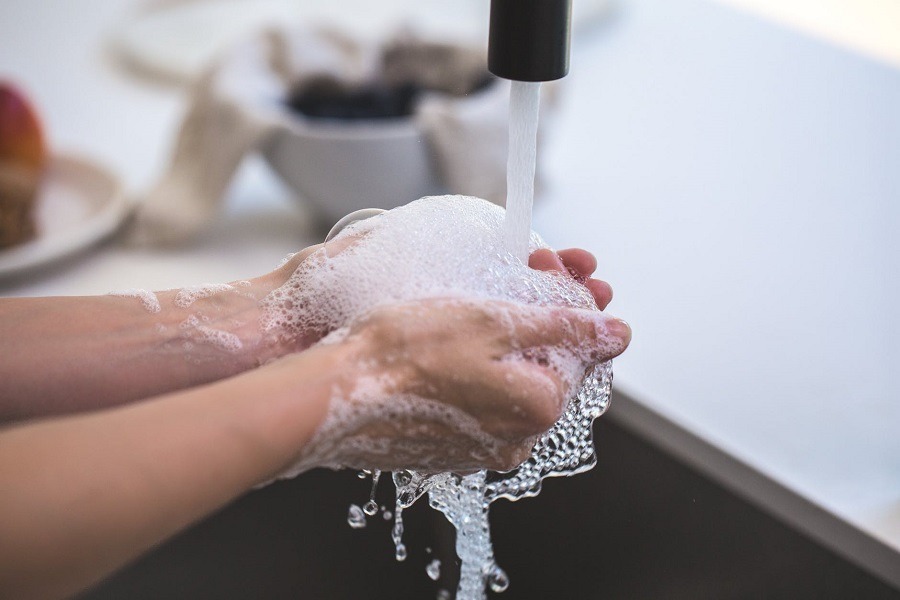Hand Washing for Caregivers

Hand washing is quick, simple and one of the best ways to prevent the spread of illnesses. Proper hand washing is especially important if you are caring for an ill or aging loved one who may have a more difficult time fighting off infection. By washing your hands regularly and thoroughly, you can help protect yourself and the people you love.
Hand Hygiene Tips
As a caregiver, proper hand washing is especially important before you cook, serve or eat food and before visiting or caring for your loved one. It’s also crucial after coughing, sneezing, blowing your nose, using the washroom, providing care, running errands, touching pets or handling garbage. The key is to wash your hands as often and as carefully as possible. There are two methods depending on what you have access to.
Sanitizing
While soap and water is the most effective way to prevent infection, it’s not always an option. If you are out and about and water isn’t available, alcohol-based gel sanitizers are recommended. Fill your palm with the gel and vigorously rub the sanitizer all over your hands, wrists, fingertips and in between your fingers until they feel dry.
Washing
To best remove bacteria and viruses from your hands with soap and water, remember these five, simple steps: wet, lather, scrub, rinse and dry.
- Wet your hands with warm, running water and apply soap.
- Lather the soap between your hands remembering to rub the backs of your hands, between your fingers and under your nails.
- Scrub well and with friction for at least twenty seconds. Try humming “Happy Birthday” to yourself from beginning to end.
- Rinse your hands thoroughly under clean, running water.
- Dry your hands and turn off the faucet using a clean towel.
By following these tips you can help keep illnesses like the common cold, influenza and diarrhea from spreading. If you see that someone interacting with your loved one hasn’t washed their hands, politely ask them to do so. Good hand hygiene should be taught to the whole family to keep you, the person you are caring for and the community as healthy as possible.
